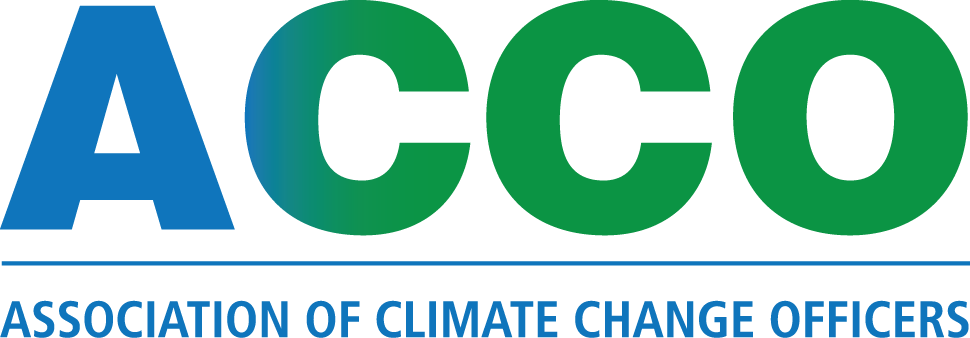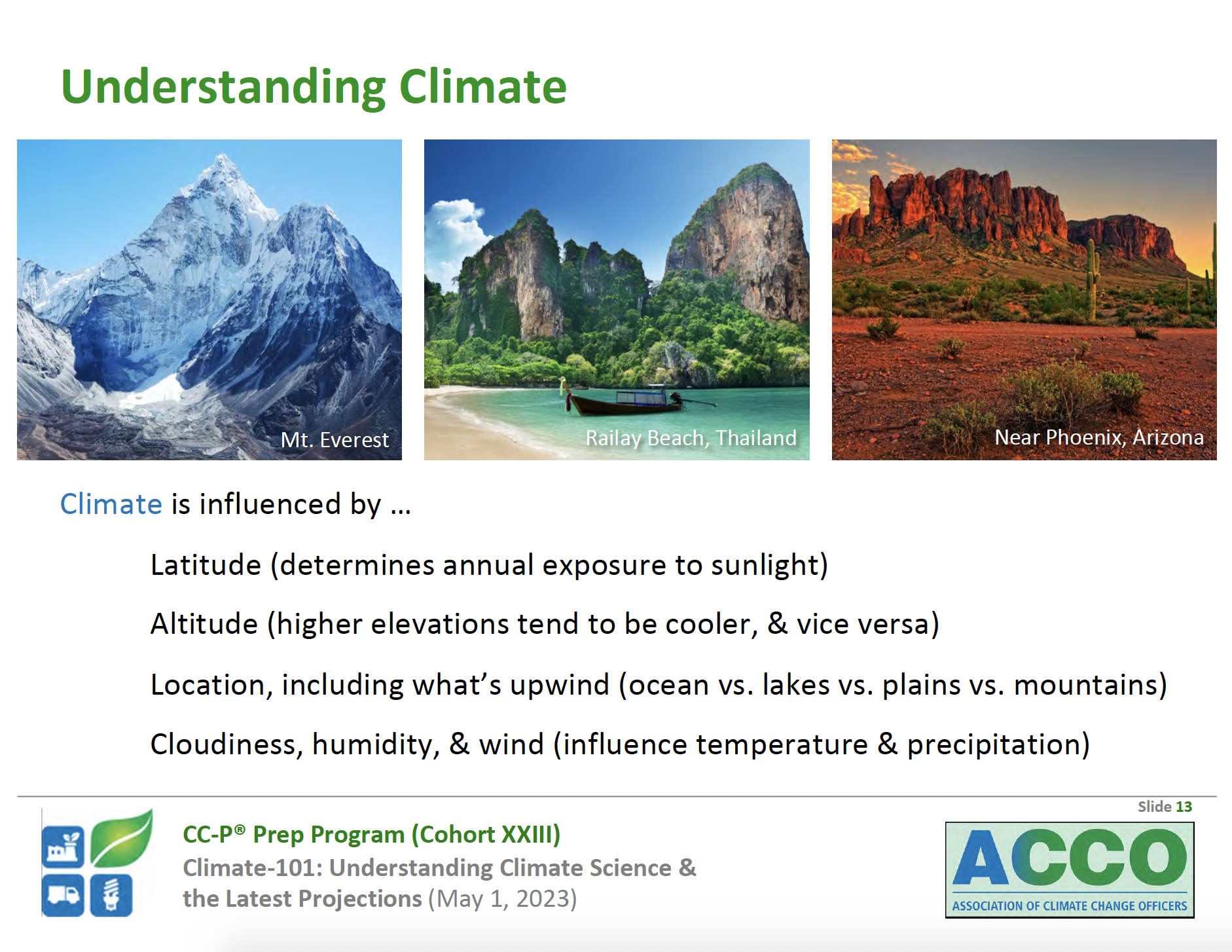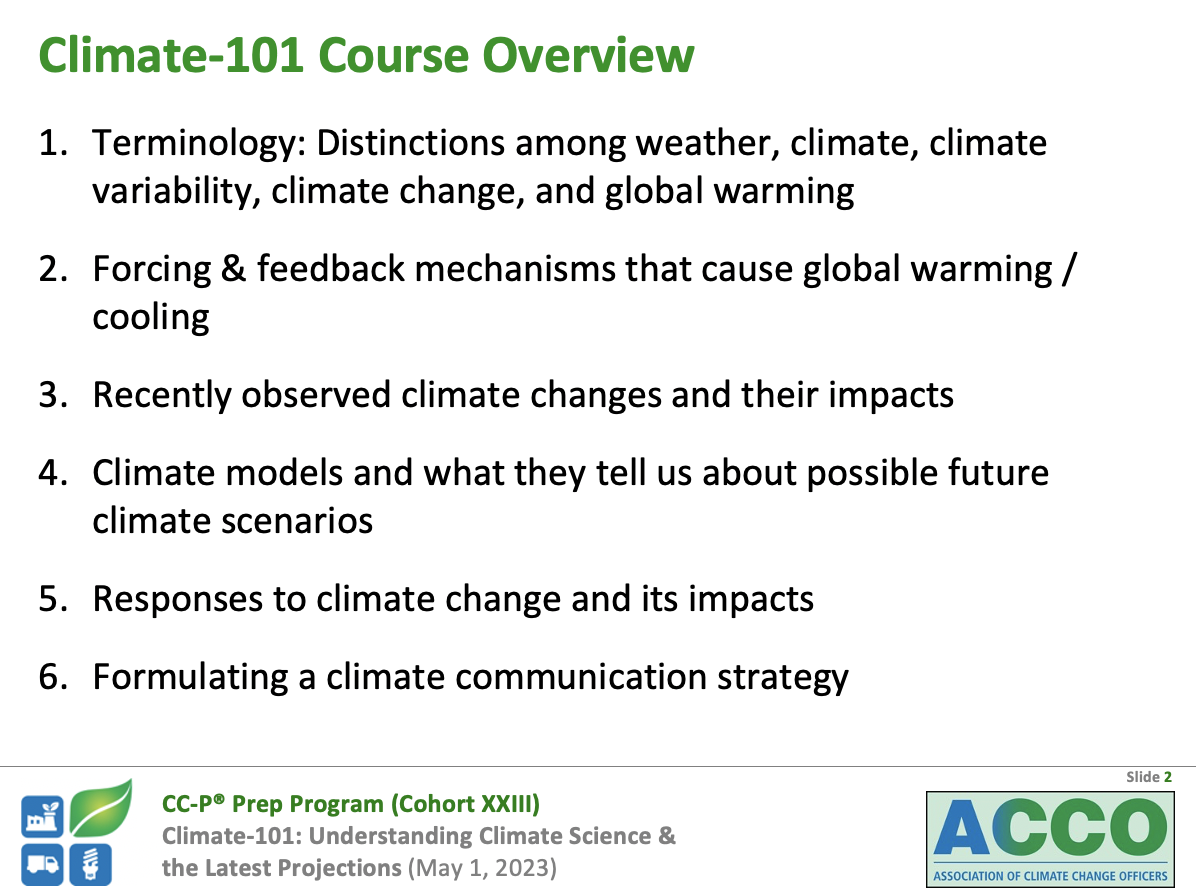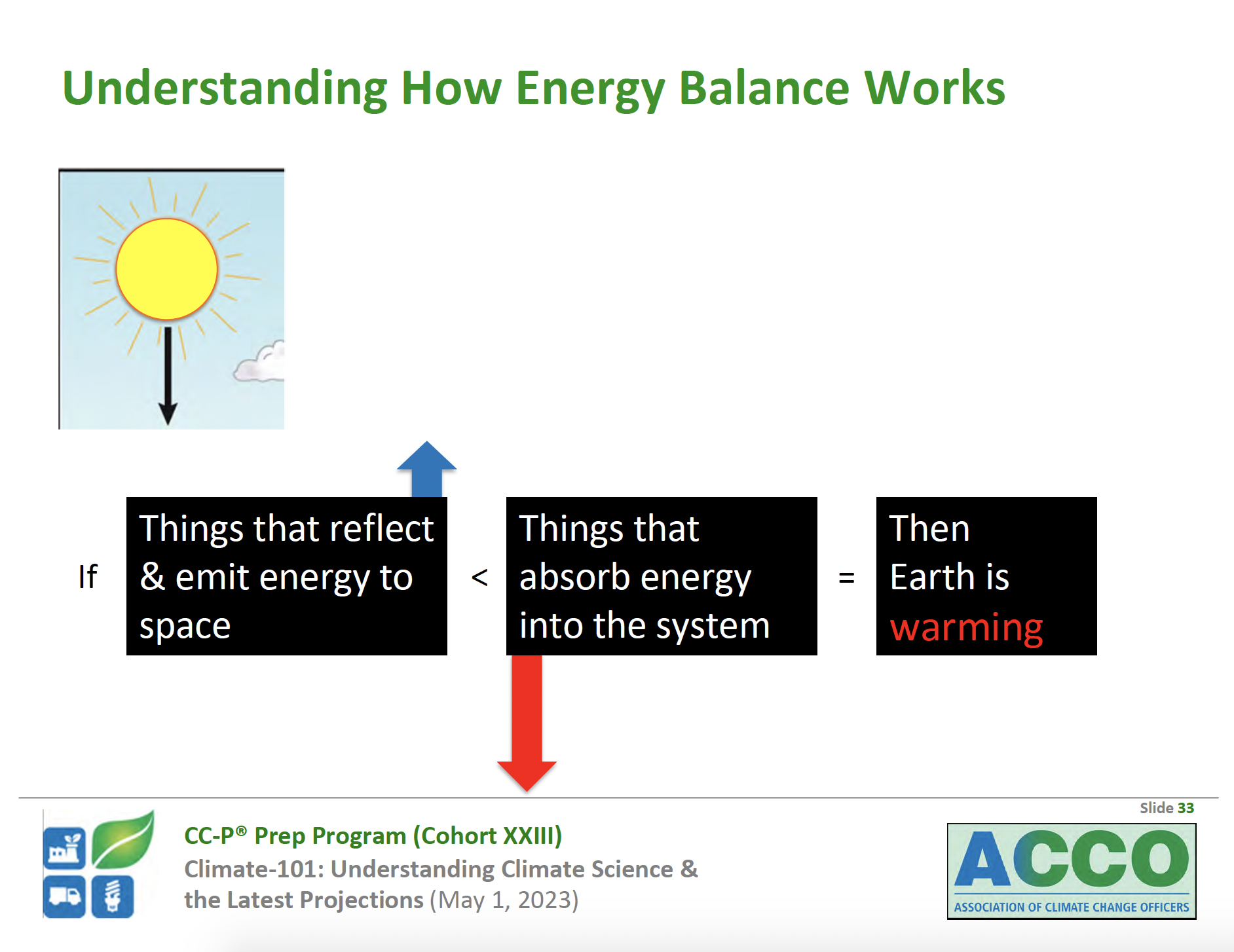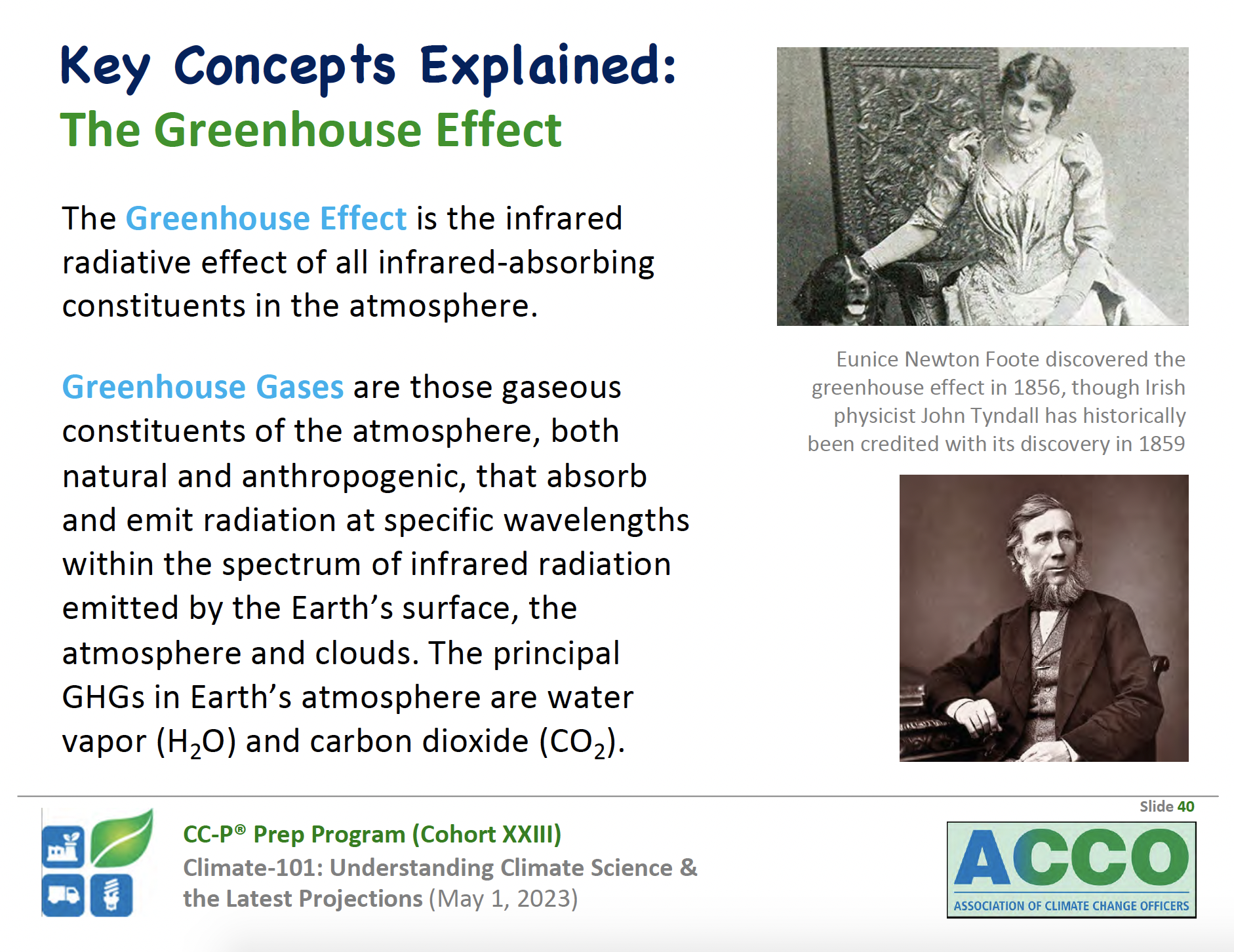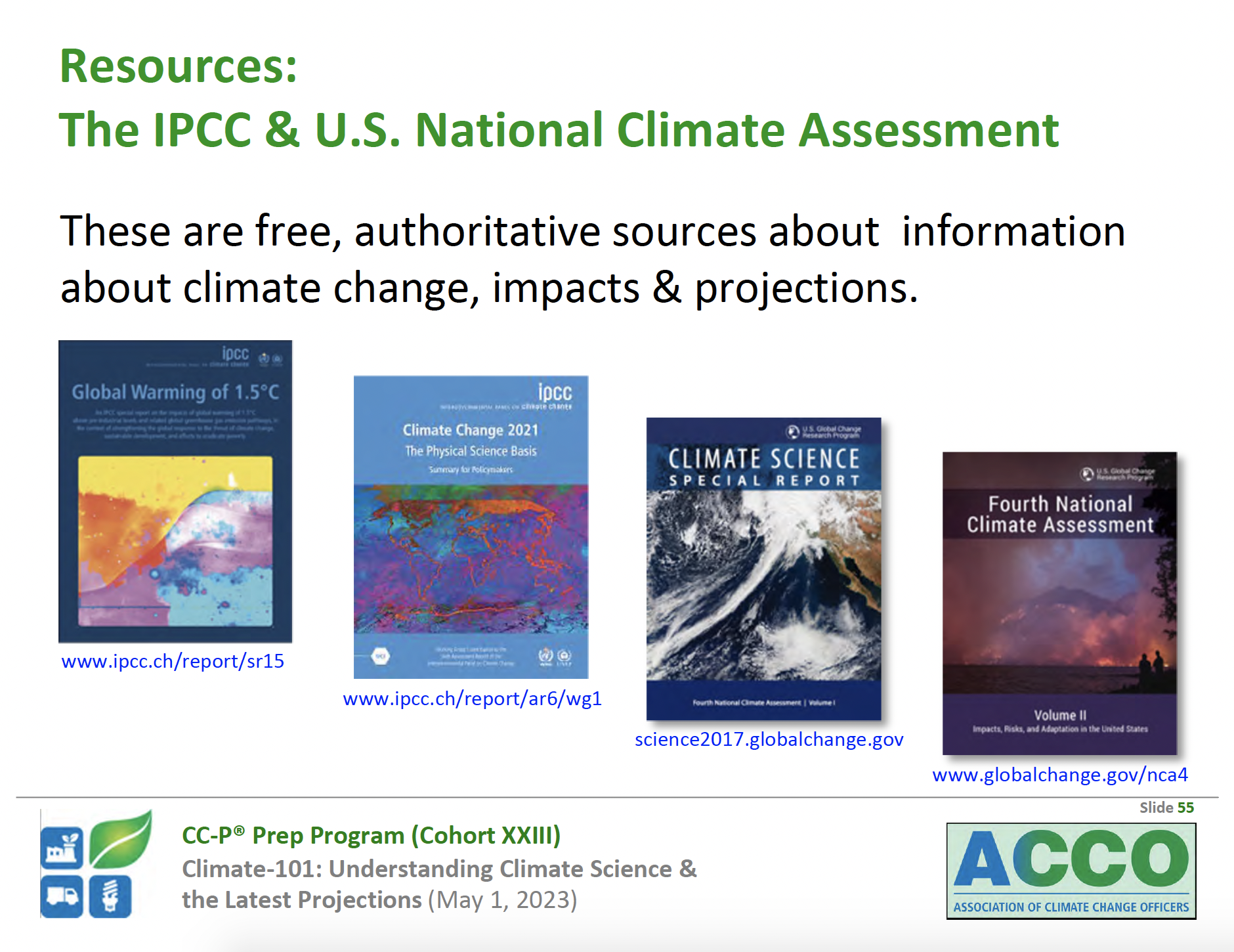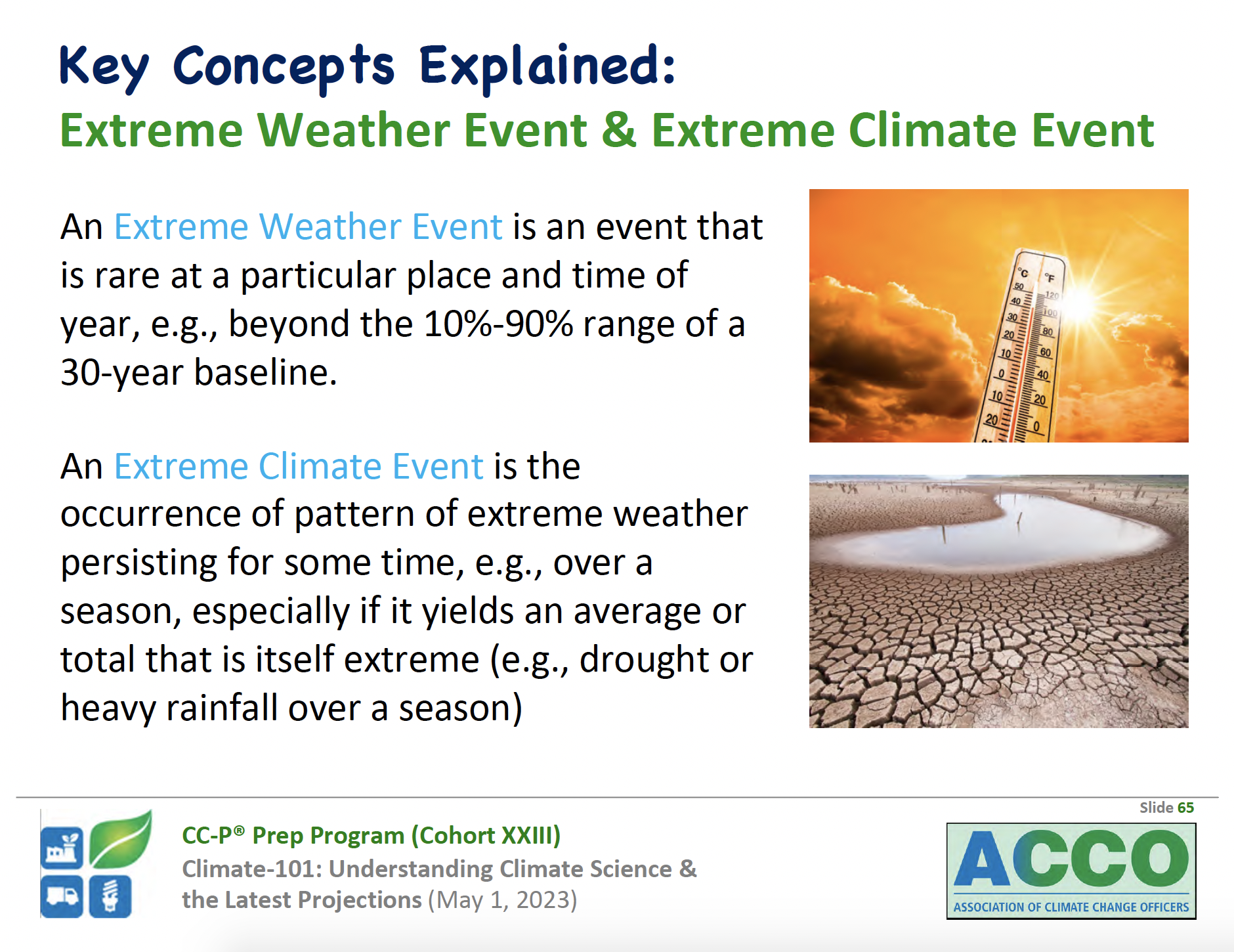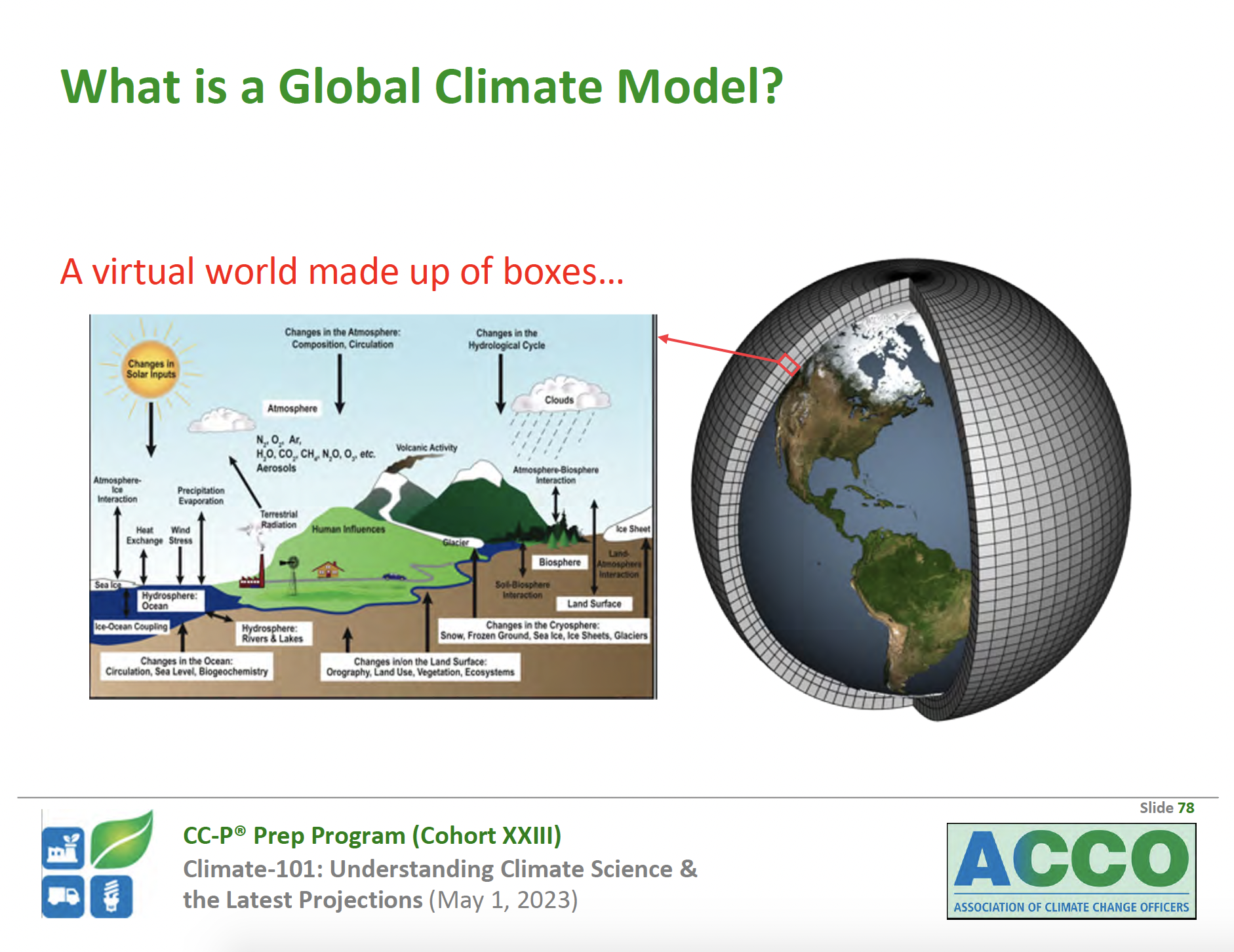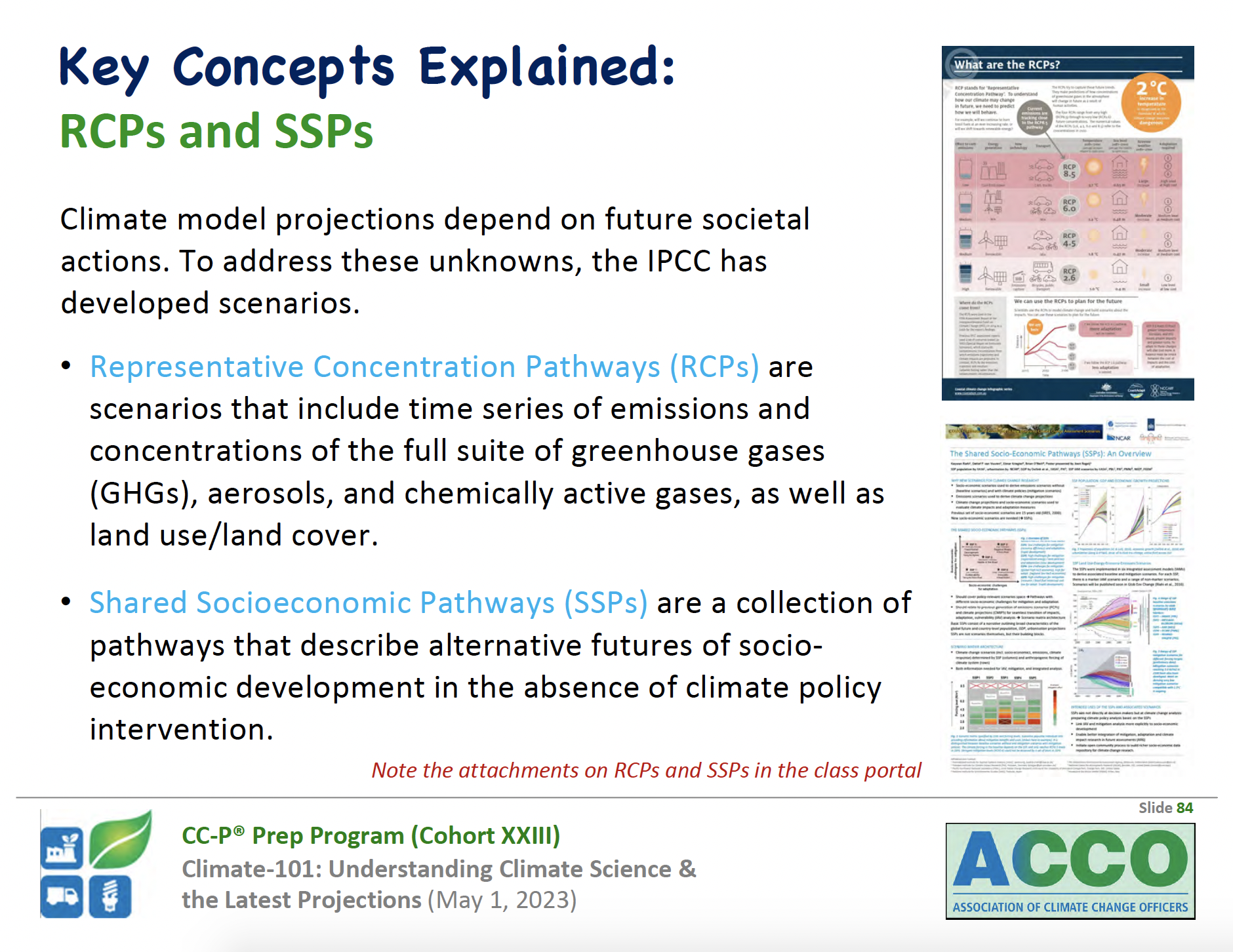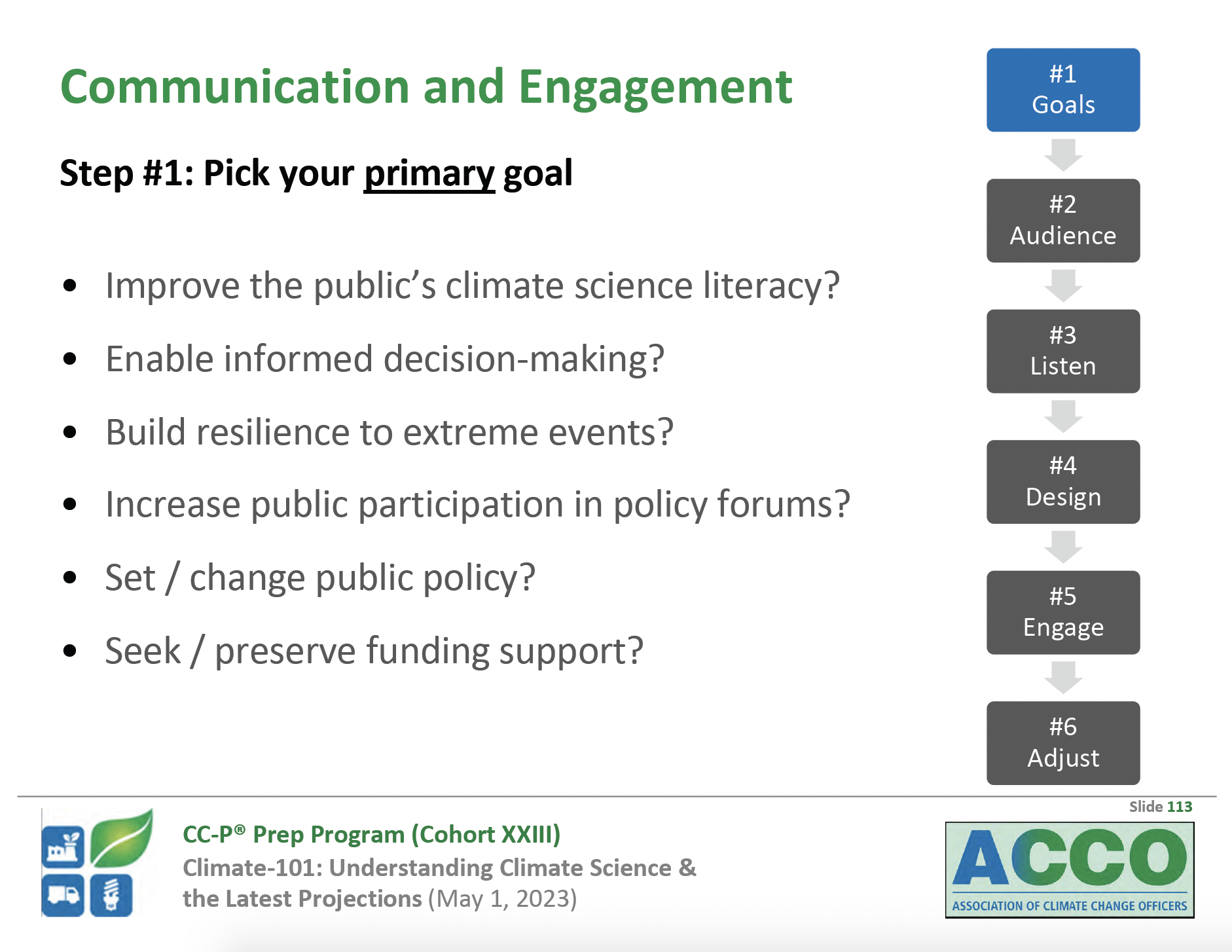Climate-101: Understanding Climate Science & the Latest Projections
Recommended Exam Prep Course (Climate Science & Vulnerability Assessment)
Estimated Time: 2 hours 12 mins (Course updated and published in May 2023)
Scroll down and to the right to perform a free self-assessment on the Climate-101 module.
This course will provide participants with an overview of the current state of knowledge about Earth’s climate system, how climate is projected to change this century, practical implications of these projections for different socioeconomic sectors, and the basics how effective communication and engagement can help mobilize your organization for action. Attendees will learn how to use climate projections to identify climate related risks and vulnerabilities, and understand how science-based information and tools are being used for strategic planning. Participants will go through an interactive demonstration to apply what they have learned throughout the course.
Learning Objectives
Distinguishing between weather, climate variability, and climate change
Describing observed recent decadal-scale changes in climate and their impacts
Paraphrasing types and trends in climate forcings, their relative importance, and uncertainty
Summarizing projected climate changes and how climate projections are made
Explaining some major impacts of projected climate change and their corresponding uncertainty
Understanding public opinion about climate change and effectively communicate about climate science to different audiences
Classifying public opinion based on scientific studies to select communication strategies
Founding Course Architects (2015)
Phil Duffy – Senior Advisor, U.S. Global Change Research Program, National Aeronautics and Space Administration
David Herring – Director of Communications & Education, NOAA Climate Program Office, U.S. National Oceanic and Atmospheric Administration
Rich Jeffries – Director of the COMET® Program, UCAR
Kathy Jacobs – Professor, Center for Climate Adaptation Science and Solutions, University of Arizona
Rachael Jonassen – Professor, George Washington University
Dwane Jones – Director of the Center for Sustainable Development, University of the District of Columbia
Paul Kirshen – Research Prof., Civil & Environmental Engineering, University of New Hampshire
Marni Koopman – Climate Change Scientist, GEOS Institute
Donna LaSala – Professor, Presidio Graduate School
Caroline Lewis – Founder & Executive Director, The CLEO Institute
Ed Maibach – Director, Center for Climate Change Communication, George Mason University
Rawlings Miller – Technical Specialist, ICF International
Paul Wagner – Senior Ecologist and Branch Chief, Institute for Water Resources, U.S. Army Corps of Engineers
Course Reviewers (2021-2023)
Alicia Betancourt, CC-P -- University of Florida Extension Director, Monroe County, University of Florida
Sarel Cousins, CC-P -- Administrator (Planner), Maryland Department of Agriculture
Ned Gardiner -- Climate Resilience Toolkit Engagement Manager, NOAA
Fred Lipschultz -- Senior Scientist, US Global Change Research Program
Adrienne Hollis — Senior Climate Justice and Health Scientist, Union of Concerned Scientists
Susan Love -- Administrator, Climate and Sustainability Office, Delaware Department of Natural Resources and Environmental Control
Lindene Patton -- Partner, Earth and Water Law, LLC
Paul Wagner -- Faculty and Fellow, Virginia Tech Center for Leadership in Global Sustainability
